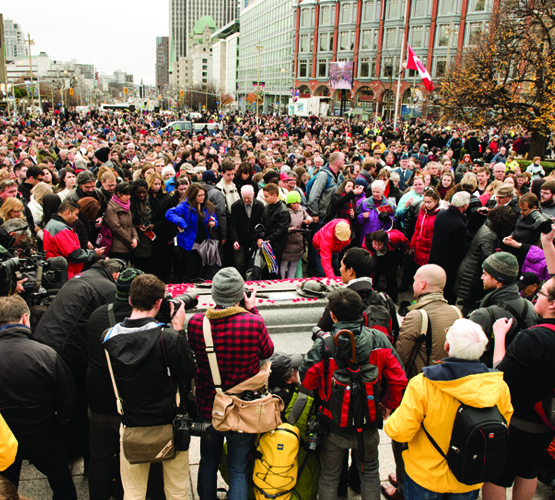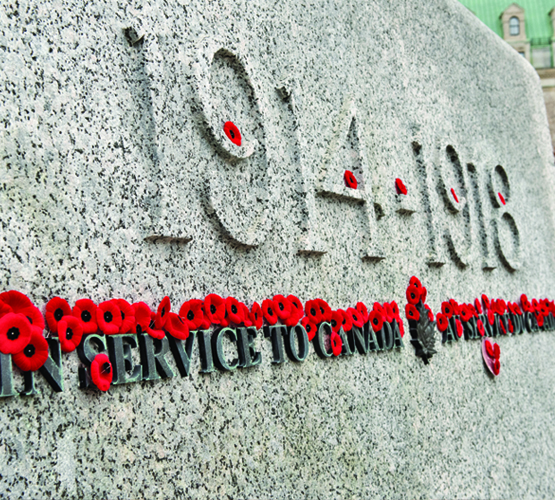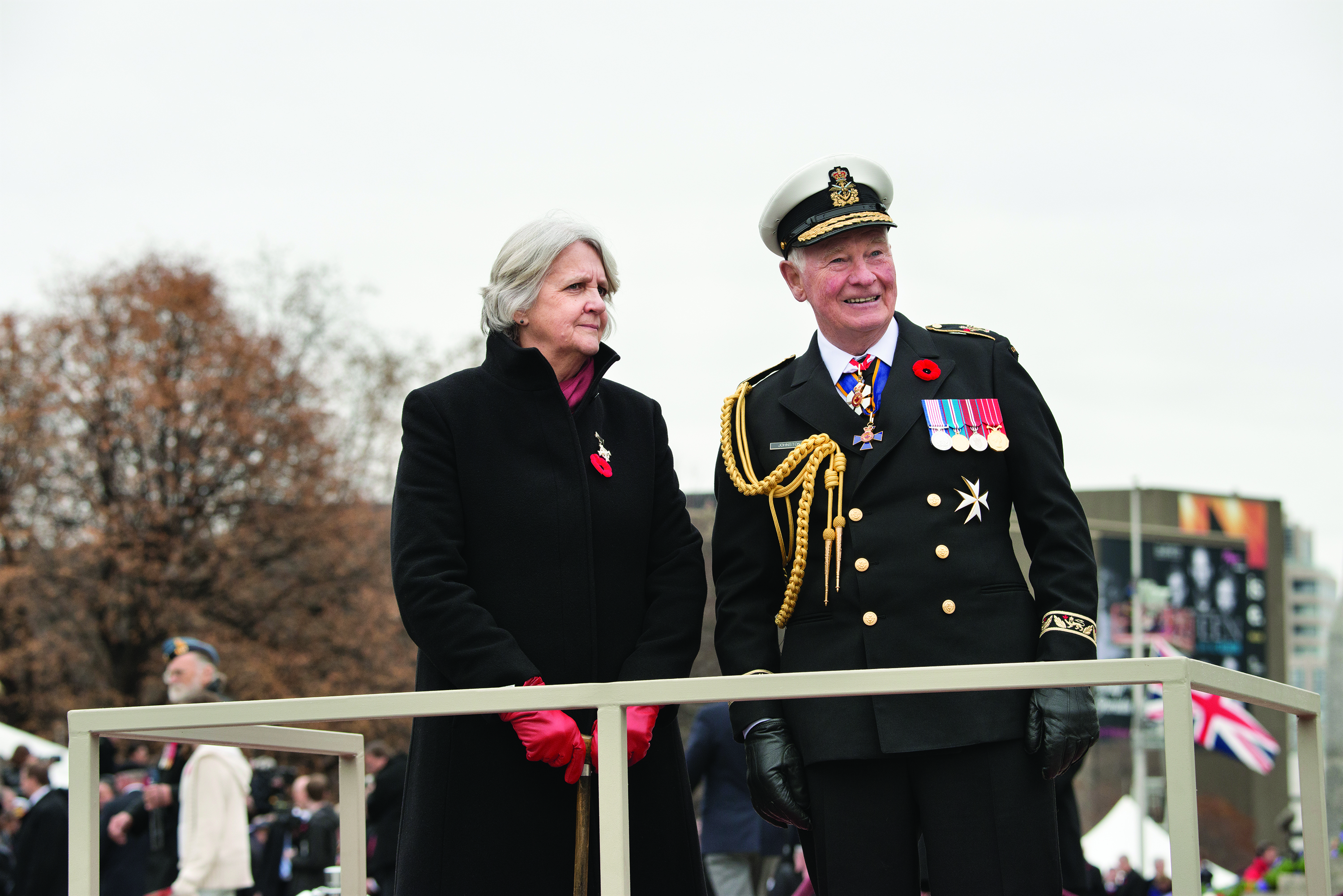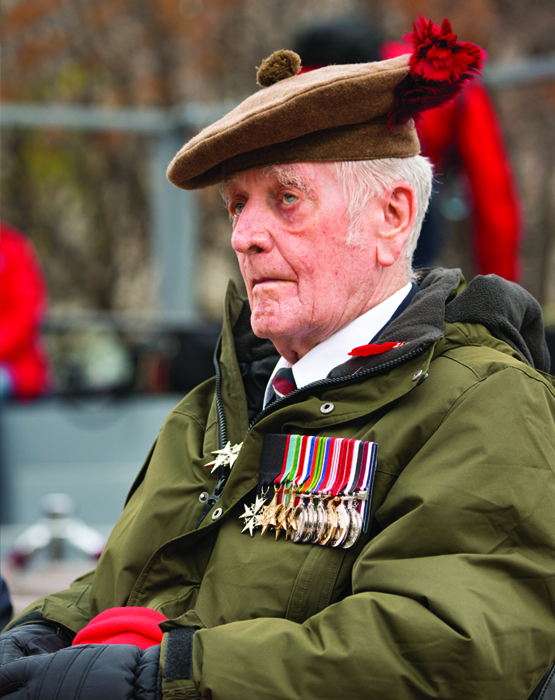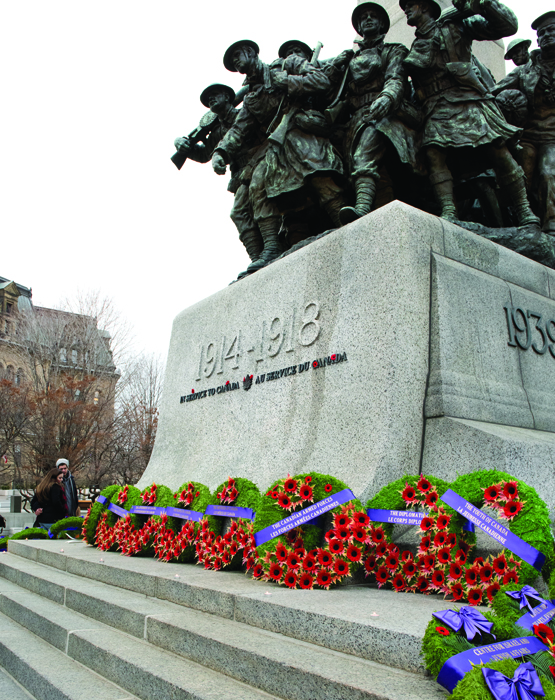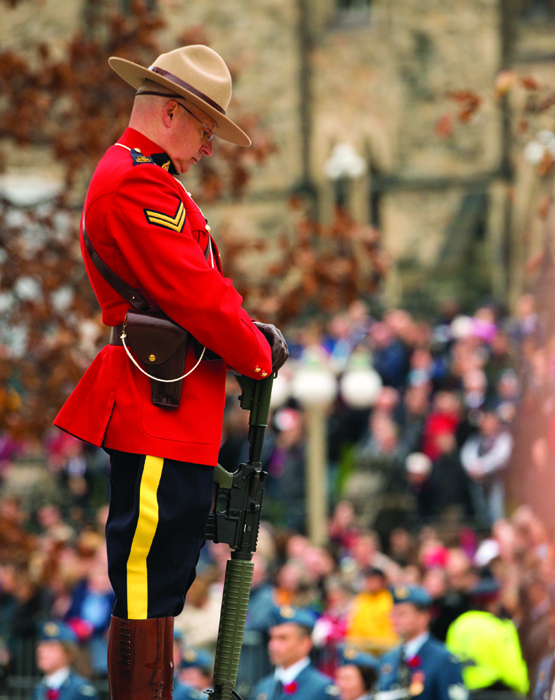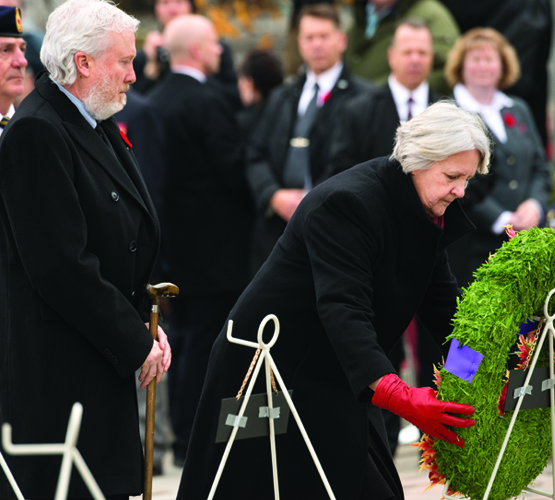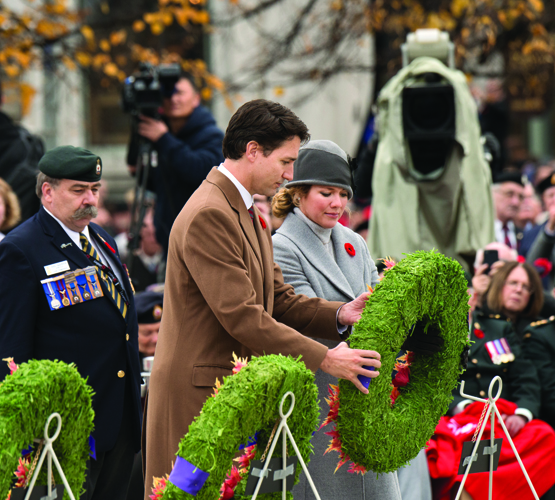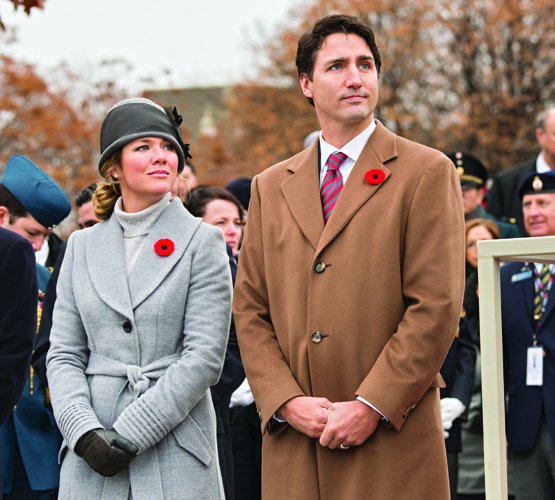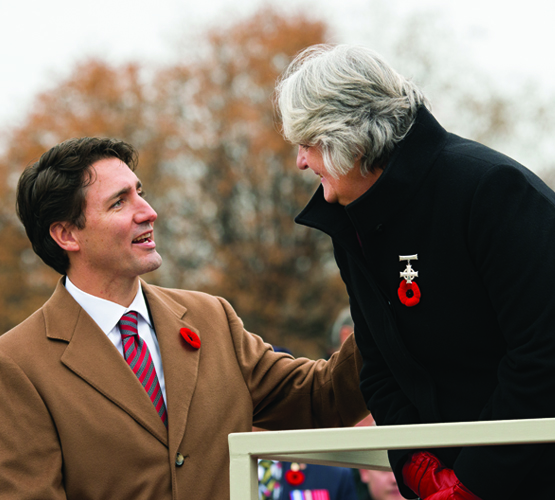Legion Magazine’s coverage of Remembrance Day at our National War Memorial.
Photography by Metropolis Studio.
After the Remembrance Day ceremony, thousands waited to place poppies on the Tomb of the Unknown Soldier.
Bronze figures, representing the 11 branches of the Canadian forces engaged in the First World War, on the National War Memorial in Ottawa.
A service dog waits beside wreaths placed at the National War Memorial in Ottawa.
Sharing a memory on Remembrance Day at the National War Memorial in Ottawa.
Poppies placed on the Tomb of the Unknown Soldier at the National War Memorial in Ottawa.
Poppies placed on the Tomb of the Unknown Soldier at the National War Memorial in Ottawa.
Poppies are pinned to the bronze words “In Service to Canada/Au service du Canada” on the National War Memorial in Ottawa.
Sentinels stand in the “Rest on Arms Reversed” drill stance during the Remembrance Day ceremony at the National War Memorial in Ottawa.
Senior winners of the Legion’s national Poster and Literary Contests, representing the youth of Canada, place a wreath during the Remembrance Day ceremony at the National War Memorial in Ottawa.
Massed Pipes and Drums march to the National War Memorial in Ottawa on Remembrance Day.
Sheila Anderson, 2015-16 National Memorial (Silver) Cross Mother and Governor General David Johnston.
Tom Eagles, Dominion President, Royal Canadian Legion.
The viceregal party waits to place wreathes on Remembrance Day at the National War Memorial in Ottawa.
Veterans march to the National War Memorial in Ottawa on Remembrance Day.
Our brave. Thank you for your service.
Our brave. Thank you for your service.
Jim Newell, Canadian Army
Black Watch (Royal Highland Regiment) of Canada
Jim Newell is a World War Two veteran who served in the Canadian Army with the Royal Highland Regiment of Canada.
Our brave. Thank you for your service.
General Jonathan Vance, Chief of the Defence Staff, and Harjit Sajjan, Minister of National Defence, greet cadets on Remembrance Day at the National War Memorial in Ottawa.
Wreaths placed at the National War Memorial in Ottawa.
A member of the Royal Canadian Mounted Police stands in the “Rest on Arms Reversed” drill stance.
Sheila Anderson, 2015-16 National Memorial (Silver) Cross Mother, and her husband James Anderson place a wreath.
Justin Trudeau, Prime Minister of Canada, and Sophie Grégoire-Trudeau place a wreath.
Justin Trudeau, Prime Minister of Canada, and Sophie Grégoire-Trudeau watch the March Past.
Justin Trudeau, Prime Minister of Canada, speaks with Sheila Anderson, 2015-16 National Memorial (Silver) Cross Mother.
The Ottawa Children’s Choir sings at the National War Memorial in Ottawa on Remembrance Day.
Advertisement









